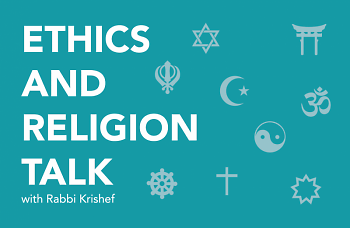Rev. Ray Lanning, a retired minister of the Reformed Presbyterian Church of North America, responds:
“Presbyterianism holds that the church is a ‘voluntary society.’ No one may be compelled to join it, and no one should be compelled to remain in it, against his or her will. Nowhere is this principle so clearly demonstrated as it is in the teaching of the Apostle Paul concerning financial contributions to support the witness and work of the church in his Second Epistle to the Corinthians.
“Paul notes that the Corinthians had previously promised to contribute to his fund for the relief of suffering Christians in Jerusalem. ‘Now therefore perform the doing of it; that as there was a readiness to will, so there may be a performance also out of that which ye have. For if there be a willing mind, it is accepted according to that a man hath, and not according to that he hath not’ (II Corinthians 8:11, 12). He adds, ‘Every man according as he purposeth in his heart, so let him give; not grudgingly, nor of necessity: for God loved a cheerful giver’ (II Corinthians 9:7).
“At the heart of authentic Christian faith, worship, and service lie the ‘willing mind’ and the ‘purposes of the heart.’ We all must be converted if we are to enter the kingdom of God. Part of that conversion is the renewal of our will, so that we come to Christ and join ourselves to His church ‘most freely, being made willing by His grace’ (Westminster Confession, Ch. X, Sec. I).”
Fred Stella, the Pracharak (Outreach Minister) for the West Michigan Hindu Temple, responds:
“Hinduism respects individuals to identify as they wish. Anyone may convert to Hinduism or leave the religion. The only thing that concerns us is how this is done. When missionaries use unscrupulous means to sway people to their faith, we might question motives or the sense of commitment on the part of the evangelized. But regardless of how they might get into another religion, we would still refer to that ex-Hindu as currently being a Christian, Jew, etc.
“As in all religions, there are many people who claim to be Hindu, but do little or nothing to express their faith other than fill their faces at holiday meals. Even in that case we are advised never to refer to such people as anything other than Hindu.”
Chris Curia, the Director of Youth Ministries at Fairway Christian Reformed Church, responds:
“The early Jesus movement was far more concerned with converting people to a new humanity, a new way of life, than leading them away from an eternal netherworld, often the current focal point of contemporary evangelistic efforts. When we experience conversion in our own lives, we shed the self-protective behaviors of our ego and surrender to new modes of living that allow our true selves to emerge. These participatory forms of conversion are much more viscous and durable than a half-hearted sinner’s prayer to a God that we have misconstrued to be more like a crutch or a lifeline than Transformation itself.
“The unfortunate tendency we have to tribalize and in so doing dehumanize those deemed unworthy of Good News is the flex of insecure ego, not a reflection of Christ. I find it interesting that particularly Christians, who cling most tightly to our beliefs in heaven, always assume ourselves to be in the in-crowd of people going. So much of contemporary Christianity concerns itself with certainty worship and membership, inevitably distracting from the very central call of Jesus—a devout Jew, mind you—to die to the self as we live in a continuum of repentance.
“In Living Buddha, Living Christ, Thich Nhat Hanh even recommends that people root themselves in the best of the traditions most suitable to their contexts before seeking conversion in a spiritual elsewhere. Can we believe that the transformative words of God transcend the very human limitations of region, language, and culture? We must continually find ways to orient to new ways of life that bring forth love, goodness, kindness, freedom, justice, and peace into our world instead of so busying our minds in heaven or hell or whatever we deem right or wrong that we stagnate in spiritual growth.”
The Reverend Colleen Squires, minister at All Souls Community Church of West Michigan, a Unitarian Universalist Congregation, responds:
“Most people who attend Unitarian Universalist churches come from other religions, not all but most. People find their way to our faith for many reasons. There is no conversion process, official membership into our faith is often the act of signing our membership book and keeping covenant/promise with the congregation. When people drift away from our faith whether they are still UU or not is entirely up them to decide.”
This column answers questions of Ethics and Religion by submitting them to a multi-faith panel of spiritual leaders in the Grand Rapids area. We’d love to hear about the ordinary ethical questions that come up in the course of your day as well as any questions of religion that you’ve wondered about. Tell us how you resolved an ethical dilemma and see how members of the Ethics and Religion Talk panel would have handled the same situation. Please send your questions to [email protected].
The Rapidian, a program of the 501(c)3 nonprofit Community Media Center, relies on the community’s support to help cover the cost of training reporters and publishing content.
We need your help.
If each of our readers and content creators who values this community platform help support its creation and maintenance, The Rapidian can continue to educate and facilitate a conversation around issues for years to come.
Please support The Rapidian and make a contribution today.
